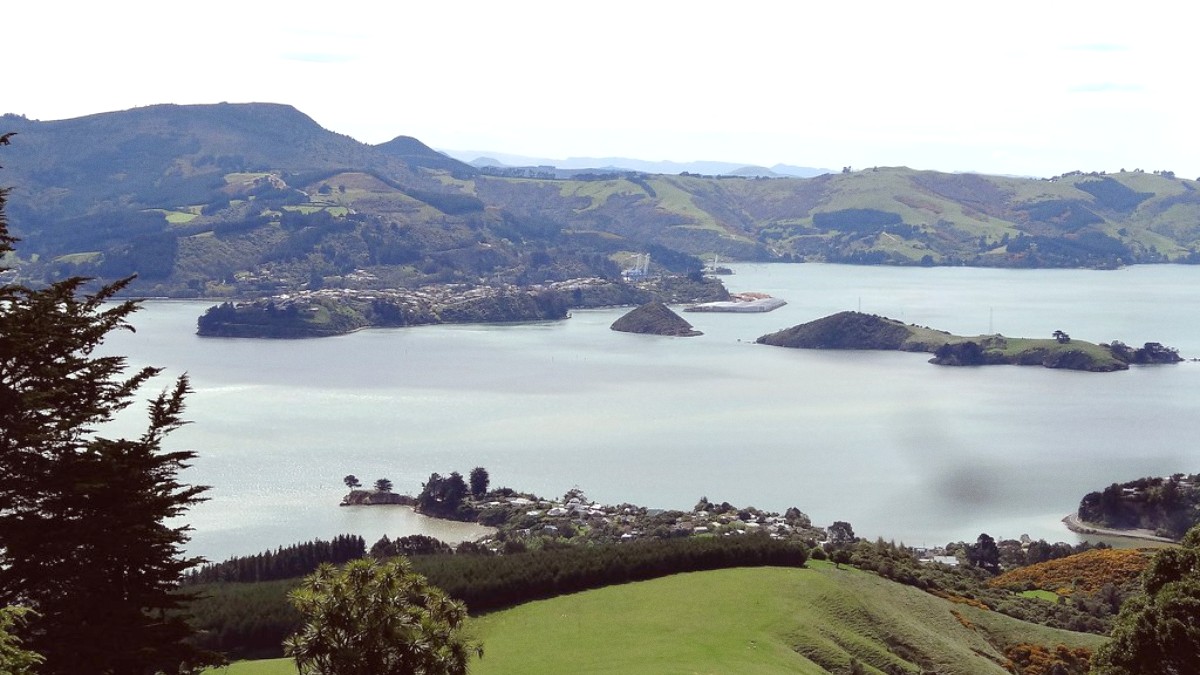
Dunedin And Otago, New Zealand
The city experiences a temperate oceanic climate, meaning temperatures are generally mild, but weather can change quickly.
Rainfall distributes evenly throughout the year, meaning no distinct dry or wet season dominates. Humidity levels remain moderate.
Choose your travel time based on your preferences for weather, crowd levels, and costs.
Dunedin is known for experiencing "four seasons in one day." Pack layers regardless of the season to adapt to sudden changes. Strong winds, especially southerlies, make cooler temperatures feel colder, especially on the coast.
Warmest weather, longest daylight
Ideal for outdoor activities and wildlife viewing. Many local events.
Accommodation and flights cost more. Larger crowds. Advance bookings needed.
Fewer crowds, better value
Pleasant weather and fewer crowds. Better value on accommodation and flights.
Weather can be more variable. Some smaller attractions might have reduced hours.
Lowest prices, minimal crowds
Prices for lodging and flights are generally lowest. Minimal crowds.
Coldest temperatures. Shortest daylight hours limit outdoor time.
Viewing opportunities for penguins, albatrosses, and seals exist year-round. Summer and autumn often deliver more consistent viewing. Northern Royal Albatross chicks are visible from September to May. Little blue penguins return to shore at dusk; warmer months generally offer more reliable and comfortable viewing conditions.
Summer and autumn deliver the most comfortable conditions for exploring walking tracks and natural areas. Festivals and events often take place during the warmer summer and autumn months.
Pack layers for sudden weather shifts, a Dunedin characteristic.
Strong winds, especially southerlies, make cooler temperatures feel colder, especially on the coast.
Snowfall in the city center is rare but possible in winter; it typically melts quickly.
While generally pleasant, southern fronts can occasionally bring cooler, wetter conditions in summer.
Autumn often brings stable weather, with clear, crisp air and abundant sunshine.
New Zealand has clear entry guidelines for visitors.
New Zealand operates a visa waiver program for citizens of many countries. Always check your specific nationality's status.
Immigration officials may request these documents to verify your eligibility for entry.
The IVL stands at NZD $35 (as of November 2023). Pay this fee when you apply for your NZeTA or visa. There are no additional entry fees upon arrival.
Upon arrival, proceed through passport control. Be ready to declare all food, plant, and animal products to Biosecurity New Zealand. Strict biosecurity regulations protect New Zealand's unique environment. Failure to declare items results in significant fines. Follow all instructions from biosecurity officers.
Standard tourist activities generally do not require special permits.
Some specific guided tours or conservation areas might have their own entry fees or advance booking. These are part of the tour booking, not separate government permits.
All travelers complete a New Zealand Traveller Declaration (NZTD) before arrival. This declares health status and biosecurity risks.
Complete the NZTD accurately to avoid delays or issues upon entry.
New Zealand uses its own currency, and understanding typical costs supports your budget planning.
The currency in New Zealand is the New Zealand Dollar (NZD), often symbolized as $ or NZ$.
Tipping is not customary or expected in New Zealand. Service staff receive a living wage. You may leave a tip for genuinely exceptional service, but it remains entirely optional and at your discretion. No obligation to tip exists.
Costs for travel and activities can vary based on several factors throughout the year.
Your well-being matters during your travels. This section covers important health and safety advice for your Dunedin trip.
Ensure routine vaccinations (MMR, DTP, polio) are current. Consider Hepatitis A/B, tetanus, especially for outdoor activities. Consult your doctor or a travel clinic for tailored advice.
New Zealand has high UV levels. High-SPF sunscreen (30+), Wide-brimmed hat, Sunglasses, and protective clothing are must-haves. Reapply frequently.
Prevalent in damp, bushy areas. Insect repellent with DEET or Picaridin works well. Long sleeves and pants at dusk are wise if visiting affected areas.
Healthcare: High standard. Comprehensive travel insurance for medical costs is needed for non-residents. Reciprocal agreements with Australia/UK are limited.
Pharmacies are widely available. For emergencies, dial 111 (Police, Fire, Ambulance). Dunedin Hospital is at 201 Great King Street.
Tap water in Dunedin and New Zealand is safe to drink. Food hygiene standards are high; eat from reputable places.
Healthline: 0800 611 116 for free medical advice.
Dunedin is a very safe city with low crime rates. Basic precautions are advisable.
City center is safe by day; be aware late at night. North Dunedin (student area) can be noisy; serious crime is rare.
Secure belongings, avoid walking alone in poorly lit areas at night, hide valuables in cars.
New Zealand lies within an active seismic zone. Be aware of potential natural occurrences.
Travel insurance is highly advisable for all travelers to New Zealand. Your policy should cover several areas.